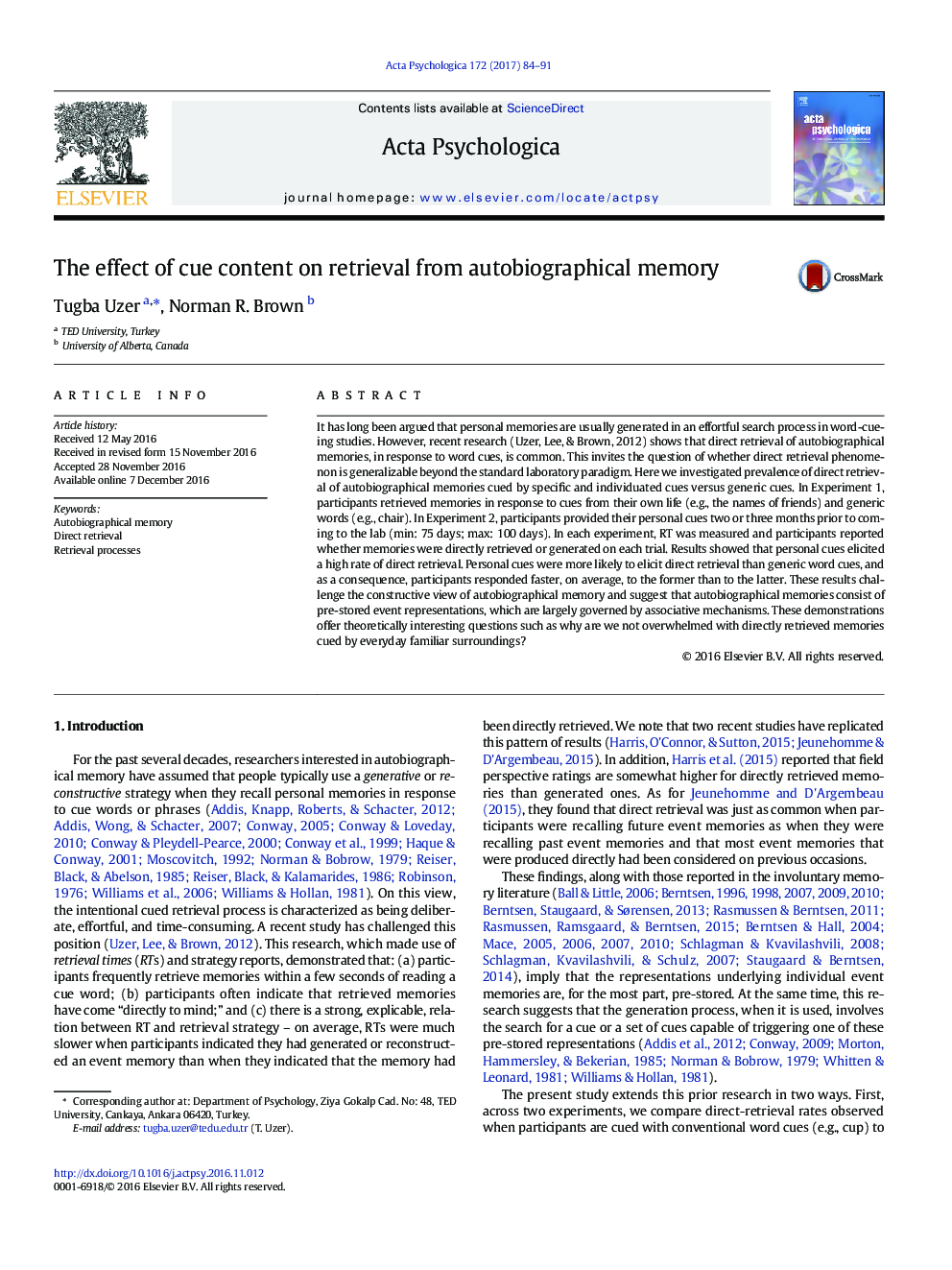| Article ID | Journal | Published Year | Pages | File Type |
|---|---|---|---|---|
| 5040259 | Acta Psychologica | 2017 | 8 Pages |
â¢We investigated direct retrieval rates for memories cued by personal cues and generic cues.â¢Participants reported retrieval strategies on each trial.â¢Personal cues elicited more directly retrieved memories.â¢Specific memories were more common than general memories regardless of retrieval type.â¢Results argue against the hierarchical retrieval models.
It has long been argued that personal memories are usually generated in an effortful search process in word-cueing studies. However, recent research (Uzer, Lee, & Brown, 2012) shows that direct retrieval of autobiographical memories, in response to word cues, is common. This invites the question of whether direct retrieval phenomenon is generalizable beyond the standard laboratory paradigm. Here we investigated prevalence of direct retrieval of autobiographical memories cued by specific and individuated cues versus generic cues. In Experiment 1, participants retrieved memories in response to cues from their own life (e.g., the names of friends) and generic words (e.g., chair). In Experiment 2, participants provided their personal cues two or three months prior to coming to the lab (min: 75Â days; max: 100Â days). In each experiment, RT was measured and participants reported whether memories were directly retrieved or generated on each trial. Results showed that personal cues elicited a high rate of direct retrieval. Personal cues were more likely to elicit direct retrieval than generic word cues, and as a consequence, participants responded faster, on average, to the former than to the latter. These results challenge the constructive view of autobiographical memory and suggest that autobiographical memories consist of pre-stored event representations, which are largely governed by associative mechanisms. These demonstrations offer theoretically interesting questions such as why are we not overwhelmed with directly retrieved memories cued by everyday familiar surroundings?
